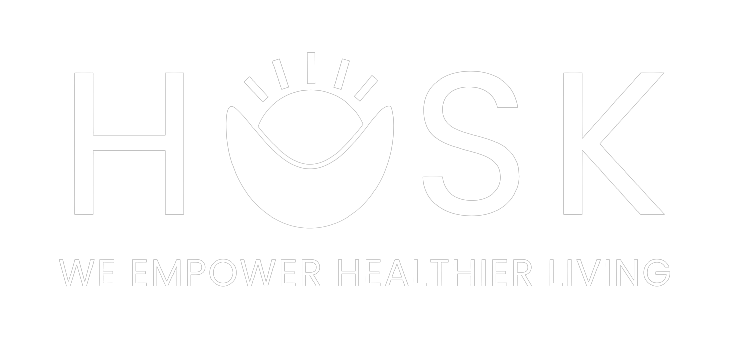
Crohn's Disease Tips & Tricks
Are you someone who battles with fatigue, abdominal pain, frequent bowel movements, or bloating? Perhaps all these symptoms describe how you feel day to day. These symptoms are most common for individuals with Crohn’s disease. Working one-on-one with a Registered Dietitian may help improve the severity of these unwanted GI symptoms through dietary intervention. Nutrition plays a huge role in whole-body health, especially the gut microbiome. The onset of Crohn’s disease can be caused by multiple factors, some of which may include environmental factors, gut dysbiosis, genetics, or emulsifiers within the diet. From a nutrition standpoint, dietary changes that can be made to help prevent the onset of Crohn’s disease or lessen the severity of symptoms include enhancing the health of your gut microbiome and reducing the number of emulsifiers within your diet as well as micronutrient supplementation.
There are a variety of foods that can enhance the health of your gut microbiome. Probiotic and prebiotic rich foods have been shown to strengthen the intestinal epithelial barrier which in turn may reduce the severity of abdominal pain and bloating. Probiotics also have an antimicrobial effect, leading to an improved immune system. Probiotic rich foods include yogurt, Kefir, Kimchi, sauerkraut and Kombucha. Incorporating these probiotic rich foods into your diet may lessen the severity of common Crohn’s disease symptoms. Along with incorporation of probiotics, a diet rich in prebiotic food sources have also been shown to improve GI symptoms. Prebiotics are indigestible foods that provide a fuel source for the healthy bacteria in our gut, known as probiotics. Prebiotics are fiber rich foods, mostly found in fruits, vegetables, and whole grains. To incorporate both prebiotic and probiotic rich foods in your diet, try combining plain Greek yogurt topped with mixed berries, flaxseed, and whole grain cereal.
After focusing on what foods you can add into your diet, let us consider what foods to reduce consumption of. Refined pre-packaged foods such as chips, cookies, sugary granola bars, sugary cereals, sauces, dressings, and freezer meals are typically low in fiber, high in sodium, and added sugar. These foods often include an emulsifying agent to aid in the formation of a well-blended product. Emulsifiers come from plant, animal, or synthetic sources. Emulsifiers are commonly seen in the Western diet where more processed pre-packaged foods are consumed. Emulsifiers are found in the form of egg lecithin, mono and diglycerides, polysorbates, carrageenan, guar gum, or canola oil. Frequent consumption of emulsifiers combined with tight epithelial junctions in the GI tract as seen in those with Crohn’s disease can exacerbate intestinal inflammation and intestinal permeability leading to unwanted GI symptoms. Focusing on eating mostly whole nutrient dense food sources day to day is recommended. This does not mean you cannot pick up a pre-packaged food ever again, but it may be worth looking at the ingredient list and choosing products with less emulsifiers. Take a protein bar for example, not all brands are created equal. Some ingredient labels are more complex compared to others. Ideally, you would choose a protein bar with little to no synthetic emulsifiers such as RX Bars, Promix Bars or homemade protein bars!
Once you have revamped your diet, it may be beneficial to add supplements to improve overall health. Individuals with Crohn’s disease often suffer from inflammatory bowel disease which leads to increased bowel movements, reduced intestinal absorption, and altered gut flora. As a result, sometimes vitamin and mineral malabsorption occurs. Nutritional deficiencies may include folate and vitamin D. Folate can be found in food sources such as leafy greens, nuts, and beans. Whereas the main source of vitamin D is sunlight exposure to skin. Depending on your location and season, sun exposure may be limited. In this case, most times a vitamin D supplement would be recommended. It is encouraged to get routine blood work to ensure no nutritional deficiencies are present.
If you are battling with Crohn’s disease, first try improving nutrition habits before trialing any specific diet. Through increasing probiotic and prebiotic rich foods and reducing consumption of refined pre-packaged foods, GI symptoms may improve. Work with a Registered Dietitian one on one to determine the best dietary protocol for you and your nutrition needs. See below for a list of healthy snack ideas to promote a healthier gut while reducing refined pre-packaged food products in your diet
SNACK/MEAL IDEAS:
- Plain Low-fat Greek Yogurt with Berries and Flaxseeds
- Broccoli Florets with Hummus
- Greek Yogurt Ranch Dip with Carrots
- Ezekiel Bread Toasted with 1 Tbsp. Almond Butter and ½ bottle or 1 serving of Kombucha (look for Kombucha with <10 grams of added sugar per serving)
- Dave’s Killer Bread (21 Grain) with Mashed Avocado and Kimchi
HOW CAN WE HELP?
Mental Health
Marketplace
Nutrition
Physical Therapy
Rewards
HUSK Pro
Company
About
Contact
Press
Blog

